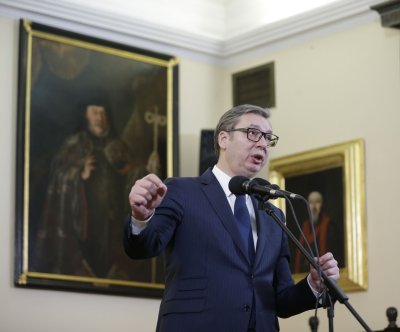NATO Calls on Kosovo to Decrease Tensions Following Ethnic Conflicts

The situation on the ground in Kosovo has been tense over the past few weeks, as ethnic clashes between Albanian and Serbian communities made headlines across Europe. Serbian President Aleksandar Vucic had already placed his military on high alert after violence escalated, leading to fears of a major conflict between the two sides.
NATO and Western allies responded by issuing a joint statement on Saturday condemning actions by security forces in Kosovo. The QUINT countries (France, Italy, Germany, Britain and the United States) urged authorities to de-escalate tensions in several Serbian majority towns. This followed a decision to swear in ethnic Albanian mayors on Thursday, replacing the Serb mayors who had resigned in November last year in protest against a cross-border dispute over vehicle registrations.
The escalation of tensions in Kosovo is rooted in its history as an independent nation that declared independence from Serbia in 2008. This was met with fierce backlash from the Serbian side, leading to a decade of strained relations between the two nations. Last year’s dispute over vehicle registrations was merely the latest chapter in the ongoing struggle.
This latest bout of violence has raised alarm bells in the international community, with NATO and the West urging both sides to de-escalate the conflict before it spirals out of control. They have called for dialogue and reconciliation between the two sides in order to prevent further violence and instability.
It remains to be seen whether the conflict will be resolved peacefully or if the animosity between the two sides will lead to further bloodshed. In the meantime, NATO forces remain on high alert and are prepared to act should the violence become too severe. Each side must take measures to ensure that both communities can live side by side in peace, for their own sake as well as for the sake of regional stability.